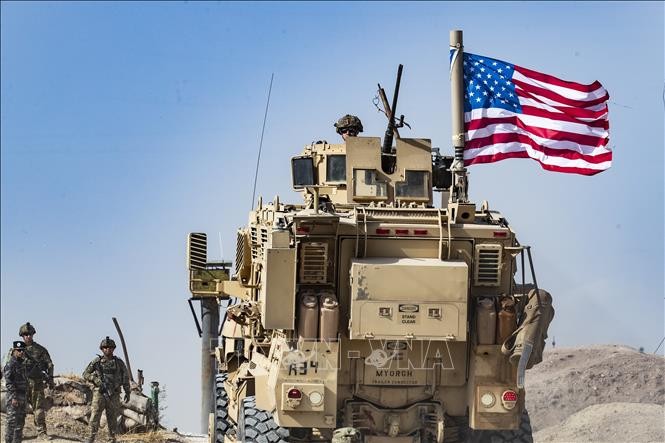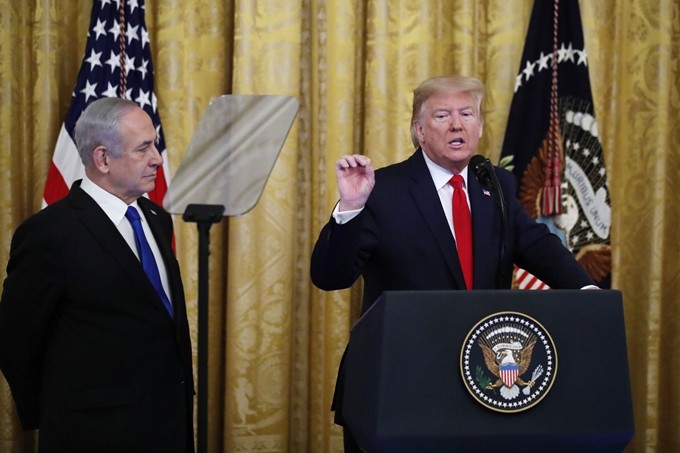(VOVWORLD) - The US under the Trump administration has continued its policy of intervention in the Middle East, an important geo-political region where the US has many interests. Like Trump’s foreign policy in general, it has faced opposition from the international community and many inside the US.
 American troops at a military base on the outskirts of Ras al-Ain, Hasakeh province, Syria on Oct 6, 2019. (photo: AFP/VNA) American troops at a military base on the outskirts of Ras al-Ain, Hasakeh province, Syria on Oct 6, 2019. (photo: AFP/VNA) |
Analysts say the US policy of intervening and exerting its influence in the Middle East in 2020 took on the personal imprint of President Trump, who is well known for impulsive decisions. Setting aside the critics, some positive signs have appeared in the Middle East, which has been a hot spot for decades.
Promoting conciliation between Israel and the Arab world
The US’s biggest foreign achievement in 2020 and during Trump’s 4-year presidency was the signing of agreements normalizing relations between Israel and several Arab countries.
Representatives from Israel, the United Arab Emirates, and Bahrain signed an agreement witnessed by Trump at the White House on September 15, 2020.
Israel signed a normalization agreement with Sudan on October 23 and Morocco on December 10. The US administration said other Arab nations are now considering normalizing relations with Israel.
Despite objections from Palestine and certain other Arab countries, it’s generally conceded that the US-backed normalization agreements are a positive trend in the Middle East.
 US President Donald Trump announces a Middle East Peace Plan next to Israeli President Benjamin Netanyahu on January 28, 2020. (photo: AP) US President Donald Trump announces a Middle East Peace Plan next to Israeli President Benjamin Netanyahu on January 28, 2020. (photo: AP) |
Isolation and sanctions on Iran
Not all American policies to intervene and exert influence in the Middle East have been applauded, notably America’s tough stance on Iran.
In January the US administration conducted an airstrike that killed General Qassem Soleiman, top commander of Iran’s Quds force. The assassination was seen as a dangerous provocation which Iran answered with a missile attack on a US military base in Iraq on January 8.
The US imposed new sanctions on Iran in January and March for what it said were violations of UN resolutions on nuclear development. The US also tried to extend the UN arms embargo on Iran which expired in October. In July US special envoy on Iran Brian Hook refused to rule out military measures to deter Iran from developing nuclear weapons.
The US’s sanctions and military threats against Iran undercut efforts to achieve peace between Israel and Arab countries and continue to feed apprehension about the future of the Middle East.